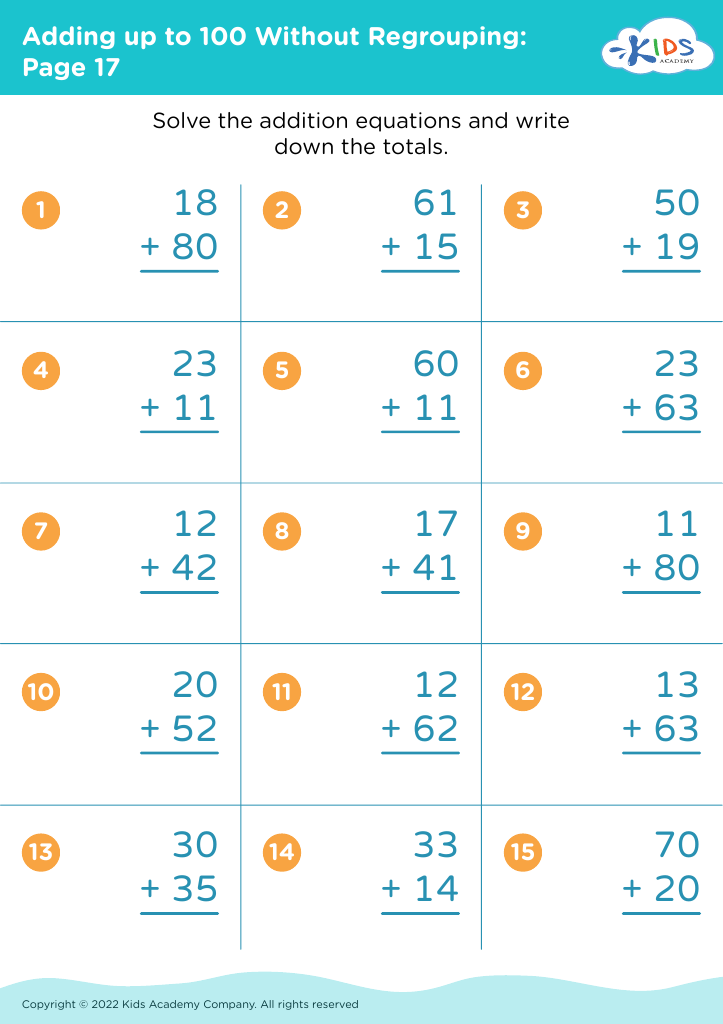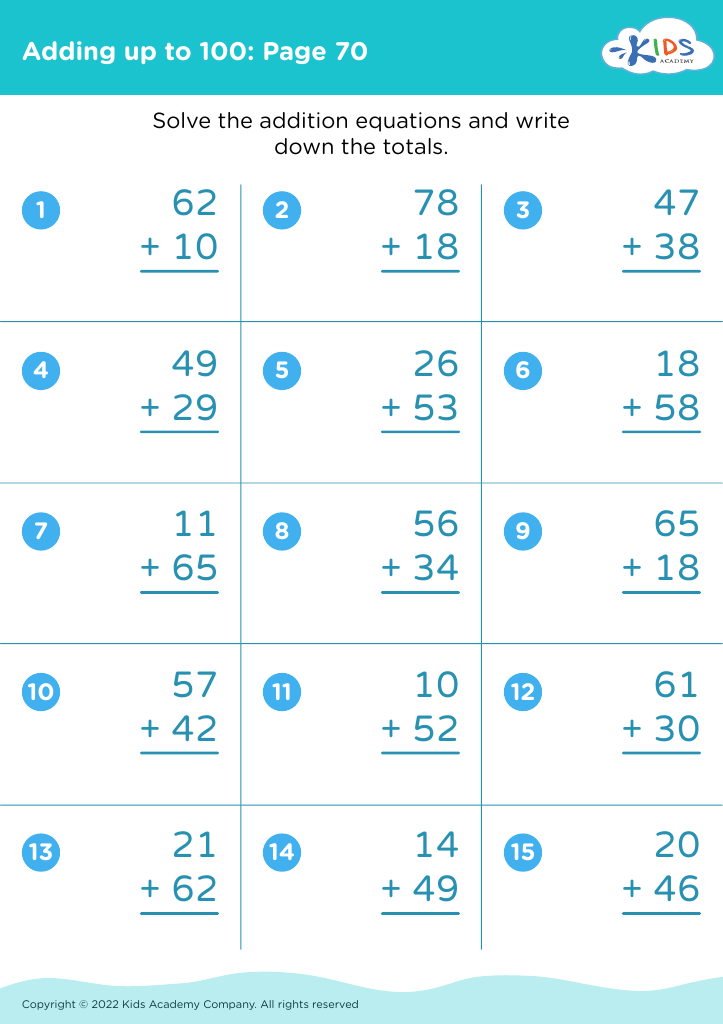Color recognition Adding up to 100 Worksheets for Ages 6-7
4 filtered results
-
From - To
Enhance your child's learning with our "Color Recognition Adding Up to 100 Worksheets," designed specifically for ages 6-7. These engaging worksheets blend color recognition with essential addition skills, making math fun and interactive. Each worksheet features vibrant illustrations that encourage children to identify and name colors while solving addition problems up to 100. Ideal for reinforcing mathematical concepts, these activities promote critical thinking and improve concentration. Perfect for classroom or home use, our resources help cultivate both numerical ability and creativity, ensuring a well-rounded educational experience. Inspire a love for learning in your child today!
Color recognition and understanding the concept of addition, such as adding up to 100, are essential developmental milestones for children aged 6-7.
Firstly, color recognition plays a crucial role in early learning. It helps children identify and differentiate objects, enhances their language skills, and lays a foundation for art and creativity. Recognizing colors also aids in the development of cognitive skills, as children begin to categorize and sort objects, fostering critical thinking abilities.
Similarly, mastering addition concepts, particularly the basic idea of summing numbers up to 100, is pivotal in mathematics education. This skill is foundational for more complex math concepts later on. It improves their number sense, enhances problem-solving abilities, and encourages logical reasoning. Moreover, being proficient in addition boosts a child's confidence in handling mathematical tasks, contributing positively to their overall academic progress.
Parents and teachers should prioritize these skills to ensure a comprehensive learning experience. Engaging children in activities that blend color recognition and basic arithmetic, like color-coded counting games or art projects that involve adding colored objects, can make learning enjoyable and effective. Overall, nurturing these skills equips children with essential tools for their future learning and development.









%20(1).jpg)











